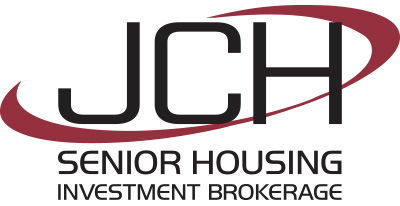Price Per Bed &
Price Per Unit Value
With the boom of the senior housing industry, investors, buyers and sellers are studying the valuation metrics causing senior housing investments to be measured more closely. These numbers have been growing, and continue to grow with great speed. No matter what senior living investment you look at, you will find two metrics essential in calculating value. Alongside the all-important income approach using a cap rate, senior housing valuations also includes a price per bed and price per unit value.
The Senior Housing Sector is Growing
and the Numbers Prove It
Price per unit applies to independent living facilities, memory care facilities and assisted living facilities. (Read How To Calculate Senior Housing Investment, click here.)
Independent living facilities and assisted living facilities have been experiencing drastic increases in their valuations. Even distressed assets, those that cannot generate enough cash flow to derive an income approach valuation, are selling for much higher valuations. What previously sold between $45,000 and $55,000 per unit several years ago is now trading for up to $100,000 per unit, if not more.
This is even better news for senior living properties that perform well financially, particularly for performing assets in the assisted living space. Forty-year-old facilities, with the cash flow to support it, are trading at well over $250,000 per unit in California. That kind of pricing is equal to new construction in some cases. Newer assisted living facilities, under 15 years of age, with high cash flows are now exceeding $500,000 per unit. With these types of numbers, new players and veterans alike are eager to sell assisted living properties.
Those preparing to buy skilled nursing facilities for sale should look for the price per bed valuation, the metric by which skilled nursing properties are measured. SNFs are also experiencing the same skyrocketing rise in pricing, shattering glass ceilings on prices set previously by investors and operators.
Historically, most US skilled nursing markets topped off at about $100,000 per bed no matter the cash flow, however, this is no longer the case. Now, skilled nursing facilities for sale have been trading well above this number. Most recently, Sabra Health Care REIT, Inc. of Irvine purchased four skilled nursing facilities for sale in Maryland. Their purchase included 678 beds at a $234 million total valuation. That calculates to an astounding, and unprecedented, $345,000 per bed.
The prices per bed valuation on distressed assets are rising as well. What used to sell for $30,000 to $40,000 per bed is now being traded for $60,000 to $70,000 per bed in states like California with large barriers to entry for new construction.
The JCH Group is Your Investment Specialist
When the senior housing industry attracts new buyers and sellers with these incredible senior housing valuations, it becomes increasingly important to have the right guidance in choosing your senior housing or other assisted living investment.
As one of the most experienced healthcare brokerages, the JCH Consulting Group specializes in senior living investments, nursing home investments, assisted living investments and designing the best deal possible for your goals.
For your free business valuation or other complimentary information on how the JCH Group helps you with senior housing investments, contact one of our experienced agents today!


